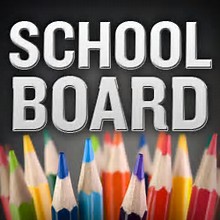The following article was contributed by Dan Ryan, Ed.D., President of Dowling Catholic High School in West Des Moines, IA.
 What do you think when you hear the words Catholic School Governance? In my experience the responses have ranged from blank stares to words of contempt. Catholic school governance, or boards, are often ignored. That is until a misunderstanding of the board’s role emerges in the form of a personnel issue, mission misinterpretation or financial crisis brings them to the forefront.
What do you think when you hear the words Catholic School Governance? In my experience the responses have ranged from blank stares to words of contempt. Catholic school governance, or boards, are often ignored. That is until a misunderstanding of the board’s role emerges in the form of a personnel issue, mission misinterpretation or financial crisis brings them to the forefront.
However, the opposite scenario can also be found to be true. Some Catholic school boards significantly add to the school’s mission and assist the principal/administrative team in moving the school to new heights. The board helps provide expertise, find resources and save the principal time.
Why is there such a wide discrepancy in board performance?
Like most ventures in life, board performance often equates to the effort put into developing the board. However significant obstacles often block board progress even when the administrator and board want and know improvement is needed.
These five obstacles are most common:
- Board type: Understanding what type of board they are and the board’s authority.
- Stages of Board Development: Boards are like students in a classroom, they all exist at different developmental stages and their development must be differentiated to meet their needs.
- Best practices: Some boards and administrators do not understand what actions effective boards take. Guidelines for board actions need to be provided.
- Pragmatic examples: Once a board understands the areas it should work in they need practical examples, resources and tools to help expedite their actions.
- Written plan: Few boards create a written plan to address the actions they will take during the school year or how they will participate in professional development to better themselves.
During my presentation at the 2017 Catholic Leadership Summit I will share a process created to address these five points to customize board development efforts. Besides differentiating for specific diocesan or school needs, it also allows boards to quickly comprehend the authorities of their board type, link their work to the National Standards and Benchmarks for Effective Catholic Elementary and Secondary Schools, and provides concrete examples of how other boards have overcome the same issues they are encountering.